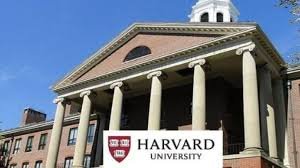A federal judge has issued a temporary restraining order halting the Trump administration’s controversial move to ban Harvard University from enrolling international students — a decision legal expert Elie Honig described as a “big win” for the university.
The ruling, which came down just minutes before Honig spoke on CNN, temporarily restores Harvard’s ability to admit its roughly 7,000 international students, who make up nearly a quarter of the student body. The Trump administration had attempted to block these admissions, citing Harvard’s handling of antisemitism on campus as justification.
“This decision puts the brakes on the administration’s effort, at least for now,” said Honig, CNN’s Senior Legal Analyst. “The court recognized the immediate and irreparable harm this policy would have caused — to the students themselves and to Harvard.”
Background: A Letter and a Legal Battle
The clash began in April when the Trump administration sent Harvard a letter demanding detailed records on all international students — including any disciplinary actions and vague categories like “obstructive” or “dangerous” behavior. While Harvard responded with available documentation, the government deemed the response inadequate and moved to revoke Harvard’s authority to admit international students under F-1 and J-1 visa programs.
Harvard responded by filing a lawsuit, accusing the administration of politically motivated retaliation. According to the university, the move was punishment for refusing to comply with political demands, including how it responded to campus protests over the Israel-Gaza conflict and its approach to diversity policies.
The Legal Arguments
In its court filings, Harvard argued that the administration violated both constitutional and procedural norms. The university cited the First Amendment, arguing that federal authorities are attempting to control speech and ideological balance on campus. It also invoked the Administrative Procedure Act (APA), saying the government failed to follow lawful procedures such as offering a hearing or appeals process.
“The administration is claiming it can revoke these visas at will, simply because it oversees the student visa programs,” Honig explained. “But Harvard is saying, ‘Wait a minute, even if you have that authority, you still have to follow the law.’ And right now, the court agrees.”
Honig emphasized that the court’s decision is temporary but nonetheless powerful. “It restores the status quo and gives students some breathing room,” he said.
Political Overtones and National Implications
The case has raised alarm beyond Harvard’s campus. Legal experts, university administrators, and business leaders are watching closely, as the outcome could affect other schools and even U.S. diplomatic and economic interests.
Harvard and its supporters argue the administration’s actions go beyond concerns about antisemitism and reflect broader political motivations. Critics accuse the administration of using federal power to pressure universities to align with its ideological agenda — particularly on issues like diversity, free speech, and the so-called “woke” culture on college campuses.
Former Harvard president Larry Summers called the move “extortion,” accusing the administration of pursuing a personal vendetta against the institution.
“This isn’t about antisemitism anymore,” Summers said in an interview. “This is about using the government to punish a university because of political disagreements.”
Economic and Diplomatic Consequences
Experts also warn that banning international students could damage the U.S. economy and its global influence. According to economists, international students contribute approximately $50 billion to the U.S. economy annually. Many of these students go on to found or lead major companies — including a significant percentage of U.S. startups valued at over $1 billion.
Beyond economics, the decision could also hurt American diplomacy. The exchange of students has long been a key element of soft power, strengthening ties with allies and even adversaries through educational collaboration.
“The benefits of welcoming international students go far beyond campus boundaries,” Honig said. “This policy, if allowed to stand, could do real damage not just to Harvard, but to America’s reputation as a global education leader.”
What Happens Next?
Although the judge’s ruling is temporary, it signals potential trouble ahead for the Trump administration’s position. The court will continue to evaluate whether the administration followed lawful procedures and whether its actions were driven by unconstitutional motives.
For now, international students at Harvard — and likely at other institutions watching closely — have reason to breathe a sigh of relief.
“This is far from over,” Honig concluded, “but for Harvard and its international students, today was a critical victory.”

